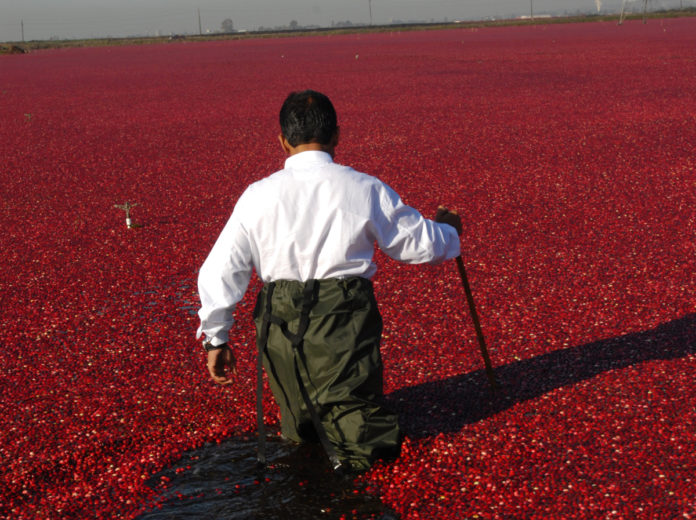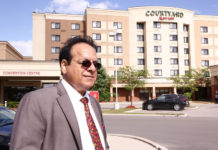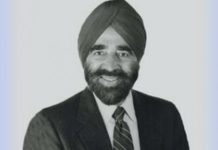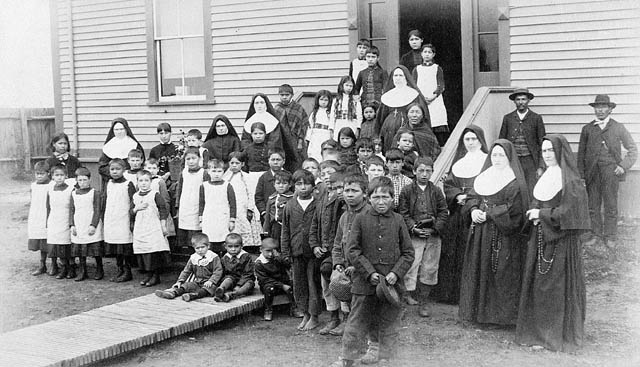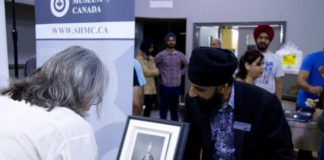Honoured with the Order of British Columbia, Peter Dhillon has partnered with the University of British Columbia to launch the $7.5 million Peter P. Dhillon Centre for Business Ethics
By Gurmukh Singh
Peter Dhillon is the undisputed cranberry king of Canada. But he could be an equally famous lawyer today.
However, he chose not to be. Instead, this Sikh from Richmond in British Columbia chose what is in his family DNA – farming. ‘‘If I have to choose all over again, I will once again choose cranberry farming. I made the right decision,’’ says Peter Dhillon whose real name is Peter PovitarDhillon.
With 20 million pounds of output last year, his Richberry Group of Companies is the Canadian leader in cranberry production. His aim is to become the world leader in cranberry production soon, he says. But in the pursuit of business success, he has never lost sight of two virtues: good ethics and compassion. In fact, the two words – ethics and compassion – roll off his tongue repeatedly as he lays out future vision for his business.
And in keeping with his values, Dhillon has partnered with his alma mater – the University of British Columbia in Vancouver – to set up the $7.5-million Peter P. Dhillon Centre for Business Ethics. Business is not just about financial success, it is about ethics, asserts the CEO of the Richberry Group of Companies.
Honoured with the Order of British Columbia for his services, Peter Dhillon created another history in 2014 when he became the first Canadian to be elected chairman of cranberry farmers’ marketing cooperative Ocean Spray with annual sales of about $2.5 billion.
As Ocean Spray chairman, he says his mission is to take cranberry products to his native India. Cranberries, he says, are one of the healthiest fruits and sure cure for urinary tract infections. In this interview, Peter Dhillon opens up about himself and talks about his family’s journey from India to Canada:
Q: Tell us about your family’s journey to Canada.
My family comes from Pandori village in Hoshiarpur district of Punjab in India. I guess my father RashpalDhillon was 12 or 13 when he came to Canada in 1950 to live with his aunt. Then his brother also came. Dad went to school, but they were very poor. My dad and his brother used to pick pop bottles to make some money. They searched for jobs, they drove lumber trucks. Life was very tough.
Q: Then your dad created history by becoming the first Sikh to join the Royal Canadian Mounted Police, right?
Yes. My father was 19 when he joined the RCMP. He was stationed in Alberta. He served
as a prison guard and then became a deputy sheriff.
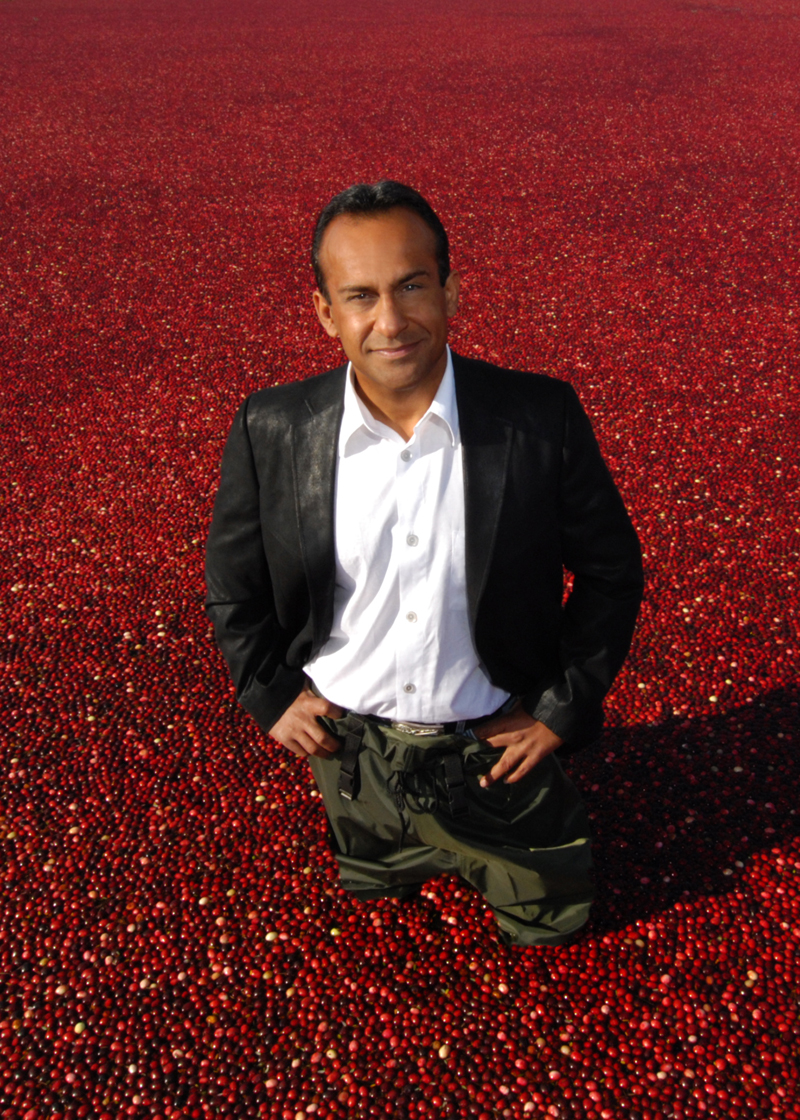
Q: So how did your dad end up in cranberry farming?
At heart, my dad was always an entrepreneur. He had worked on some farms in California and agriculture was the business he was pretty good at. In 1978, he and Didar Singh Bains (famous peach farmer of Yuba City) jointly bought a 250-acre cranberry farm. In 1981-82, my dad took premature retirement when he was in his late 40s and got into cranberry cultivation full time.
In 1985, my dad parted company with Didar Singh Bains and started his own cranberry operations with under 100 acres, then he added more and reached 250 acres. As a boy, I used to assist him. We used to work from early morning till late. He taught me the value of hard work. Then I went to the UBC (University of British Columbia) for my graduation and after doing my law degree from the UK, I joined my parents in their business in 1993.
Q: Looking back, do you think you could have done better in the legal profession?
Initially, I used to ask myself: Have I made the right decision to give up law?
Today, looking back, I can certainly say that it was the right decision. I wouldn’t have been able to have the experiences I have had if I hadn’t joined the family business.
I have met so many incredible people and sat on so many boards because of the success of Richberry.
Q: How did you choose the name Richberry for your group of companies?
We had a farm in Richmond and we were growing berries. So my dad, mom and I combined the names of Richmond and berries and came up with Richberry as the name of our company.
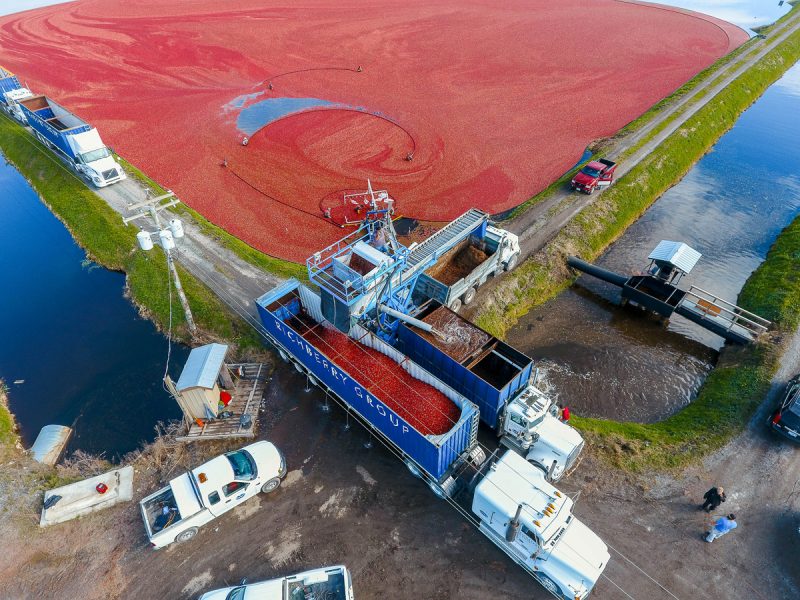

Q: Tell us about cranberry. How many times a year is it harvested? Is its farming a labour-intensive operation?
It is a berry fruit. Cranberries are one of the healthiest foods as they are anti-oxidant and very effective against stomach ulcers and urinary tract infections. Cranberries are harvested only once a year. Our peak season is from September to October. Cultivating cranberries used to be a labour-intensive operation, but now we use a lot of machinery. I have a team of professionals to run day-to-day operations.
Q: How and where do you market cranberry produce?
We market it through Ocean Spray which takes harvest directly from farmers in the US, Canada and elsewhere and sells Ocean Spray products worldwide. Ocean Spray is in about 90 countries with over 1,000 different products.
Q: Tell us more about Ocean Spray which elected you as its chairman in 2014.
It is a marketing cooperative of about 700 cranberry growers from the US and Canada. Ocean Spray is the best thing to happen to our industry. I joined its board of directors in 2003. In 2014, I became the first non-American chairman of Ocean Spray. I am proud to be its chairman. The Richberry Group of Companies are also the largest Canadian shareholders and suppliers of Ocean Spray.
Q: What about India?
Ocean Spray is keen on exploring the opportunities the Indian marketplace may have to offer. We have just completed a 72-hour trip where myself and the Ocean Spray team had 26 meetings. We met with several groups, from business and political leaders to the CEO of Invest India. We were given unique insights on how to approach business opportunities in India. There is a huge potential for cranberry juice and dried products in India as Indians are becoming increasingly health conscious.
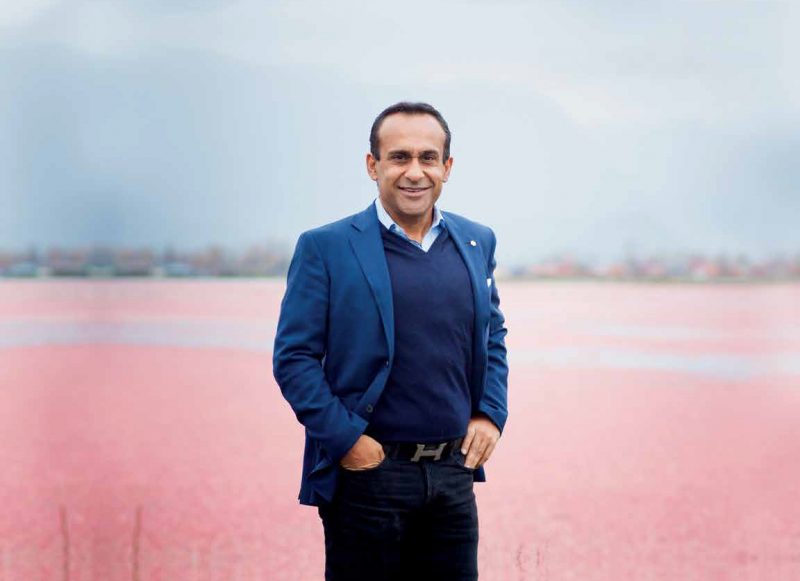

Q: What are your business plans for the next years?
We want to become the world leader in cranberry production. Currently, the biggest cranberry farmers are in Massachusetts and they have been in this business for 158 years. They have about 2,500 acres and we have 2,000 acres. So we need to catch up.
We produced over 20 million pounds of cranberries last year and we hope to the touch the 30 million-mark soon.
Q: Despite your huge success, do you have any regrets in life?
I try not to live my life where I have to regret my decisions. But what I regret is not having spent more time with my father who passed away in 2003 from the lung disease called idiopathic pulmonary fibrosis. He was my mentor.
Q: That is why you donated $2 million to the University of British Columbia to establish the Rashpal Dhillon Fund in Idiomatic Pulmonary Research and the Rashpal Dhillon Track and Field Oval in his memory?
Yeah, the donation is to honour my father’s memory and further research in idiopathic pulmonary fibrosis which claimed his life. There is no cure for this disease which kills more people than breast cancer each year. I had a great relationship with my father. He was a wonderful dad and I have great memories of him. He taught me the value of hard work and good ethics.
Q: Talking about ethics, you have established the Peter P. Dhillon Centre for Business Ethics at the Sauder School of Business at the UBC and committed half of the $7.5 million to fund it. What was the trigger for it?
As I said, my dad taught me all the good values and he remains my inspiration. The idea to start the centre for business ethics at the UBC came in 2012 when I was in Florida visiting my friend named Herb Baum – he is a former top business executive. He and I had a long conversation about business ethics and responsibilities in the wake of 2008 global crisis triggered by corporate greed and unethical b
usiness practices.
The Peter P. Dhillon Centre is one of its kind. It is functioning now. It has an office, it has an advisory board, it has an executive director. We will hire more staff soon and build syllabuses. You have to do a lot of heavy lifting in the beginning.
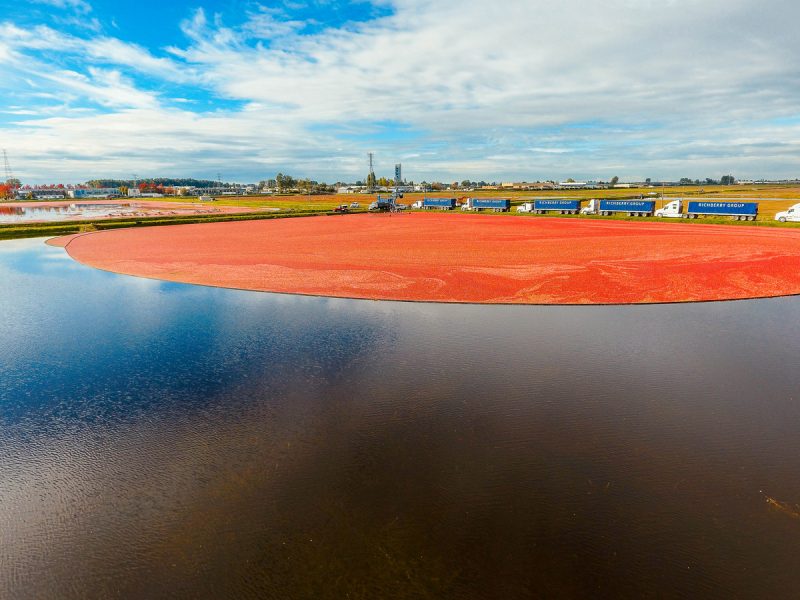

Q: How will the Peter P. Dhillon Centre for Business Ethics drill ethics into students?
The centre will teach the value of ethical decisions by business leaders. Students and young business leaders who come to the centre will be exposed to the concepts of compassion and kindness.
The centre will teach that business is not all about success, but how it is conducted. I hope this centre would have made a meaningful contribution to society if we can teach future business leaders that compassion and kindness are as important as success.
Q: Who are your icons?
There are two persons who are my icons. Of course, my father – who was an extremely hard working immigrant – is my icon and role model. The other person for whom I have the highest respect was Jack Bell – my father’s business partner. He was a person from whom I learnt the importance of giving. He was born in Montreal and moved to Vancouver to start many businesses.Jack was the first person to write a seven-figure cheque to a charity – the University of British Columbia. He moved philanthropy to a whole new level. He was my role model.
Q: And your cardinal sin in life?
I guess my cardinal sin is that at times I am not able to say ‘no’ to people. I think that has not served me well in business. I am the person who doesn’t like conflict. I would walk away and do other positive things. I look for the best in people.
Q: What kind of people do you usually associate with?
I usually associate with my closest friends. And my closest friends are business people. As there is a saying, ‘Show me your friends, I can tell anything about you.’ So the people I associate with are the ones who have good principles and who share my philosophical outlook.
One person that I often see is Rick Doman, the son of the late Herb Doman. I also like those who love a little fun. That is important especially when life is already so serious. You often have to step back a little and enjoy life.
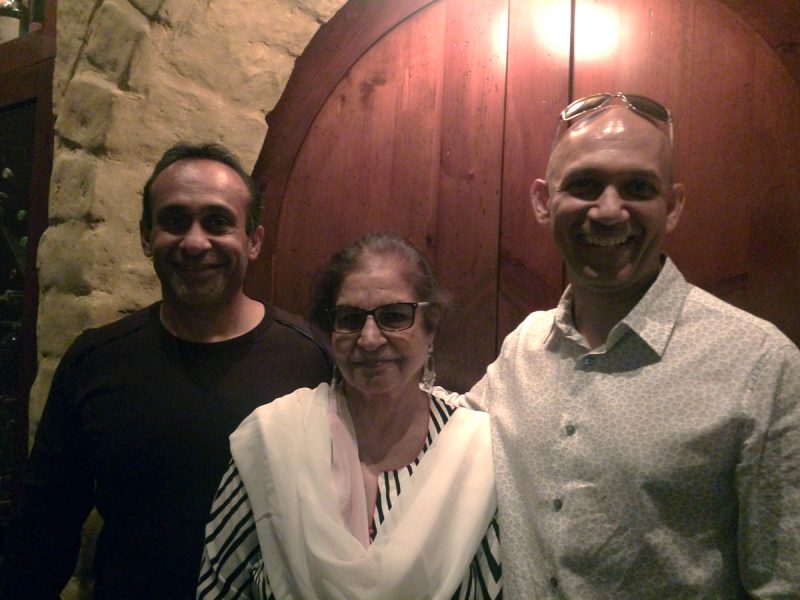

Q: Talking about enjoying one’s life, do you have any hobbies to unwind?
I like biking. That is my hobby. Another hobby of mine is the bike race from Vancouver to Whistler each year in September. It is called GranFondo and I do it every year to raise awareness about the disease – idiopathic pulmonary fibrosis – that killed my father. It is a very personal thing for me.
Q: Do you have any one thing in your life which you will never part with?
I don’t think I have anything in life that I couldn’t walk away from.
Q: Hobbies apart, how do you relax?
I go home and watch news or just sit down with friends. I don’t go on vacations because I travel a lot. Last year, I was travelling for 250 days! Then I have a home in Whistler where I go once in a while to relax. That’s all.
Q: You have spoken glowingly about your father. How about your mom?
My mom is a terrific lady. She doesn’t get enough credit for what she did for our family. She would always encourage my dad to take risks. In fact, it was she who encouraged my dad to get into cranberry farming. I wonder whether we would be in cranberry today if she had not forced my dad into it. She is a great mom.
Q: What’s your favourite place?
Whistler – I like to stay close to my home.
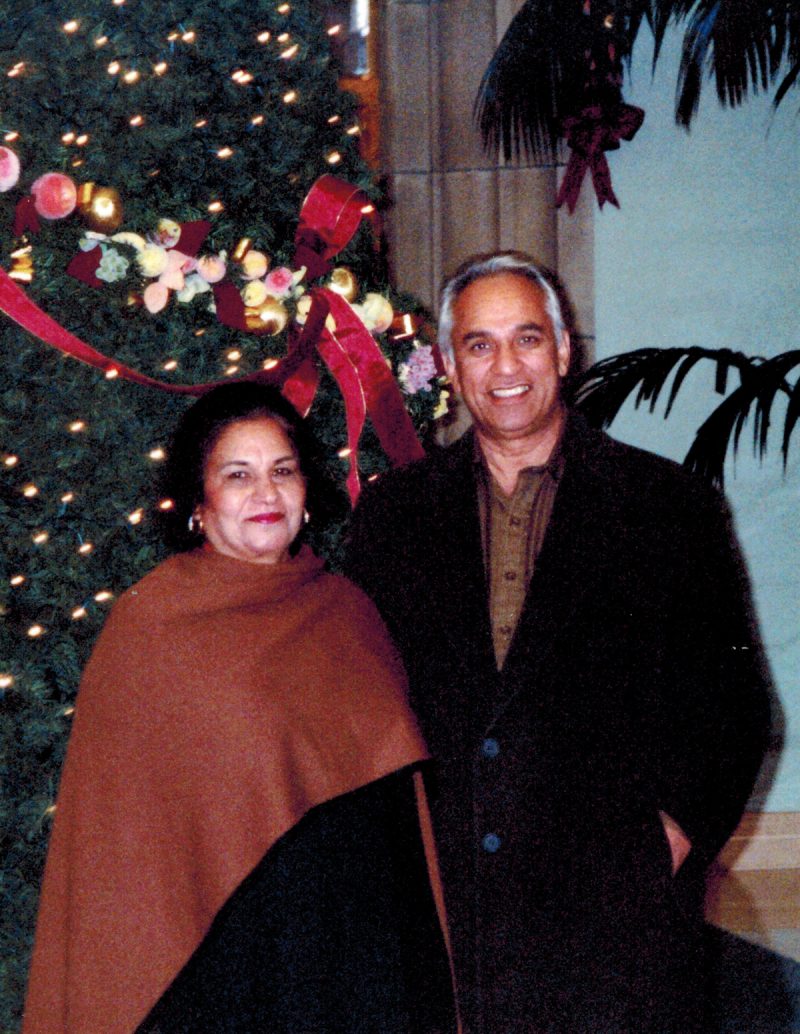

Q: Do you believe in God?
Yes, I am spiritual. I believe that life is a gift from God. I believe in karma – good things come back to you. There is some energy, some force beyond us.
Q: Your favourite book.
Good to Great by Jim Collins is my favourite book. It is about business leaders and how they take it to the
new level. It is an amazing book.
Q: The biggest honour you have received.
The Order of British Columbia. I was the youngest to receive it. Accepting it was a humbling experience because there were many accomplished older people there when I received it.
They honoured me for my community work, giving back to the community and sitting on various corporate boards.
(Updated: This article which first appeared here on Feb 7, 2018)

